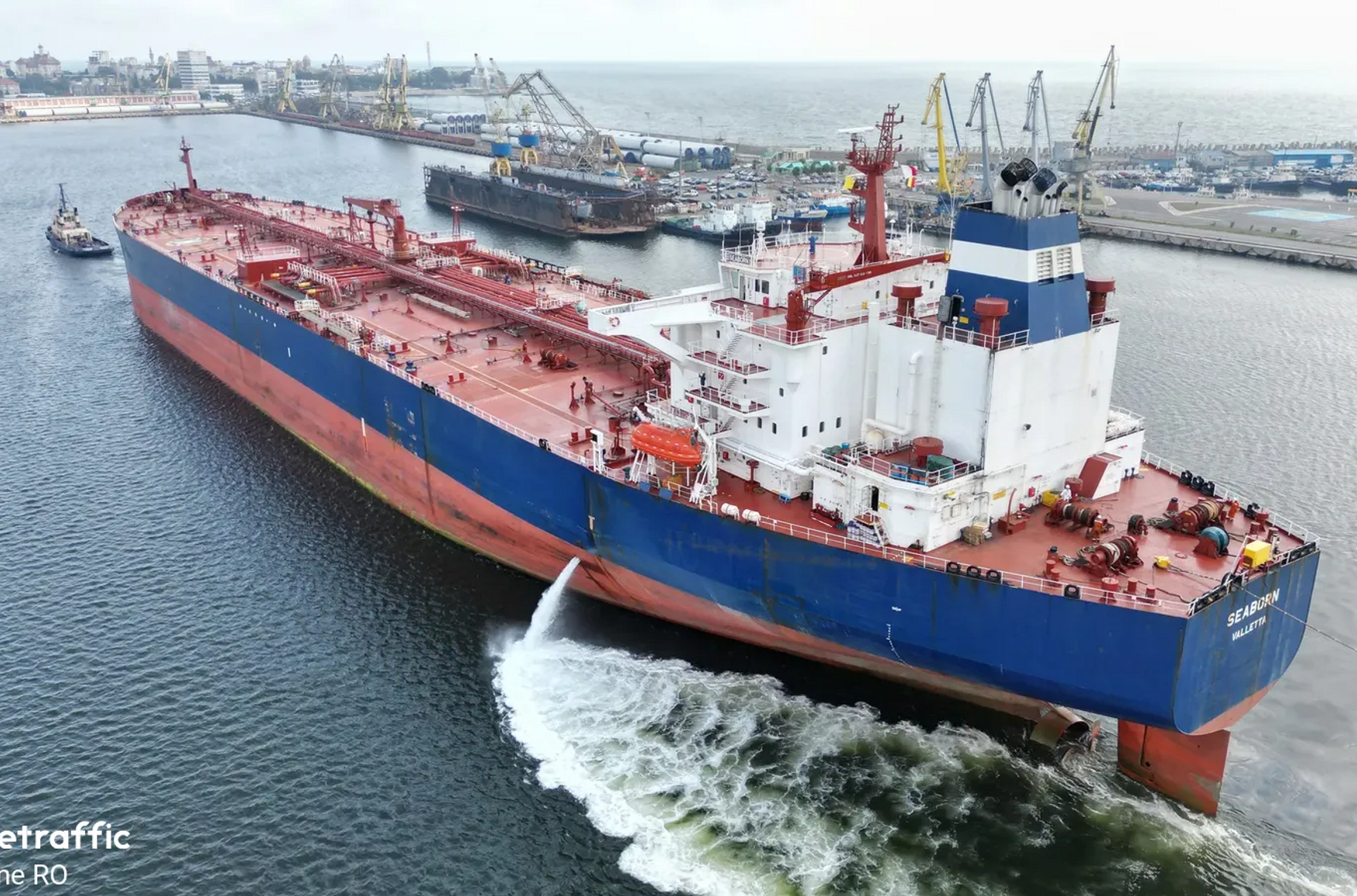
The Marathon tanker bearing its former name, Seaborn. Photo: Airdrone RO / Marinetraffic
The Marathon, a tanker from Russia’s so-called “shadow fleet,” is en route to the Danish exclusive economic zone (EEZ) carrying 100,000 tons of crude oil, according to a report by local outlet Danwatch. The vessel, also known as Udaya, departed from the Russian port of Primorsk and is currently passing through Germany’s EEZ, heading toward the Great Belt Strait, which lies within Denmark's EEZ. Maritime tracking services indicate that the Danish patrol ship P524 has already approached the tanker.

The Marathon tanker and the approaching Danish Navy patrol boat (designated DNK NAVY PATROL P524 on the above map)
Screenshot: Starboard Maritime Intelligence for The Insider
Although the vessel is transmitting a Comoros flag via its AIS (Automatic Identification System), an earlier investigation by The Insider and Starboard Maritime Intelligence revealed that it is not officially registered in any country. Following the report, Denmark’s Maritime Authority confirmed it had contacted the tanker’s crew, but was misled.
“Upon a call from the Defence Command, the ship UDAYA/MARATHON stated that it was sailing under the Comoros [flag]. However, in our follow-up with the Comoros, we have since been informed that the ship is not listed in the Comoros register,” the agency wrote.
Despite confirming the vessel’s unregistered status, Danish authorities have not disclosed their next steps, and The Insider has not yet received a response to its inquiry.
The lack of valid registration is grounds for seizure under international maritime law. Article 73 of the United Nations Convention on the Law of the Sea (UNCLOS) grants coastal states the right to inspect, detain, and prosecute vessels in their EEZs if they violate international or national regulations.
“Coastal states can detain or intercept vessels if they fly false flags (i.e. the vessel claims to be registered in a jurisdiction where it is not lawfully registered). These are stateless ships and thus do not have the right of freedom of navigation,” Gonzalo Erausquin, a research fellow at the Royal United Services Institute (RUSI), told The Insider. “States are not too eager to detain ships though. Intercepting a vessel might escalate tensions, as seen in the Russian response to protect the Jaguar tanker.”
Even if a ship is detained and escorted to a port, the intervening state will then face challenging questions, Erausquin noted:
“Who will pay for the maintenance of the ship, how long is it willing to have a tanker taking up space in its port, what happens to the cargo, what happens to the crew? ...This is still a contentious matter and numerous shadow fleet vessels flying false flags continue to transit without disruption.”
The “shadow fleet” refers to a large group of ageing and poorly insured oil tankers that are used to secretly transport Russian crude and petroleum products around the world — often in violation of Western sanctions and the G7-EU oil price cap imposed after the full-scale invasion of Ukraine in 2022.
Many of these ships are owned by shell companies in jurisdictions with lax regulatory oversight. Ships in the shadow fleet typically sail under flags of convenience — such as Liberia, Panama, or Antigua and Barbuda — to avoid scrutiny and regulatory compliance.
Much of the oil carried by the shadow fleet is destined for countries not participating in the sanctions regime against Russia, most notably China, India, and Turkey.